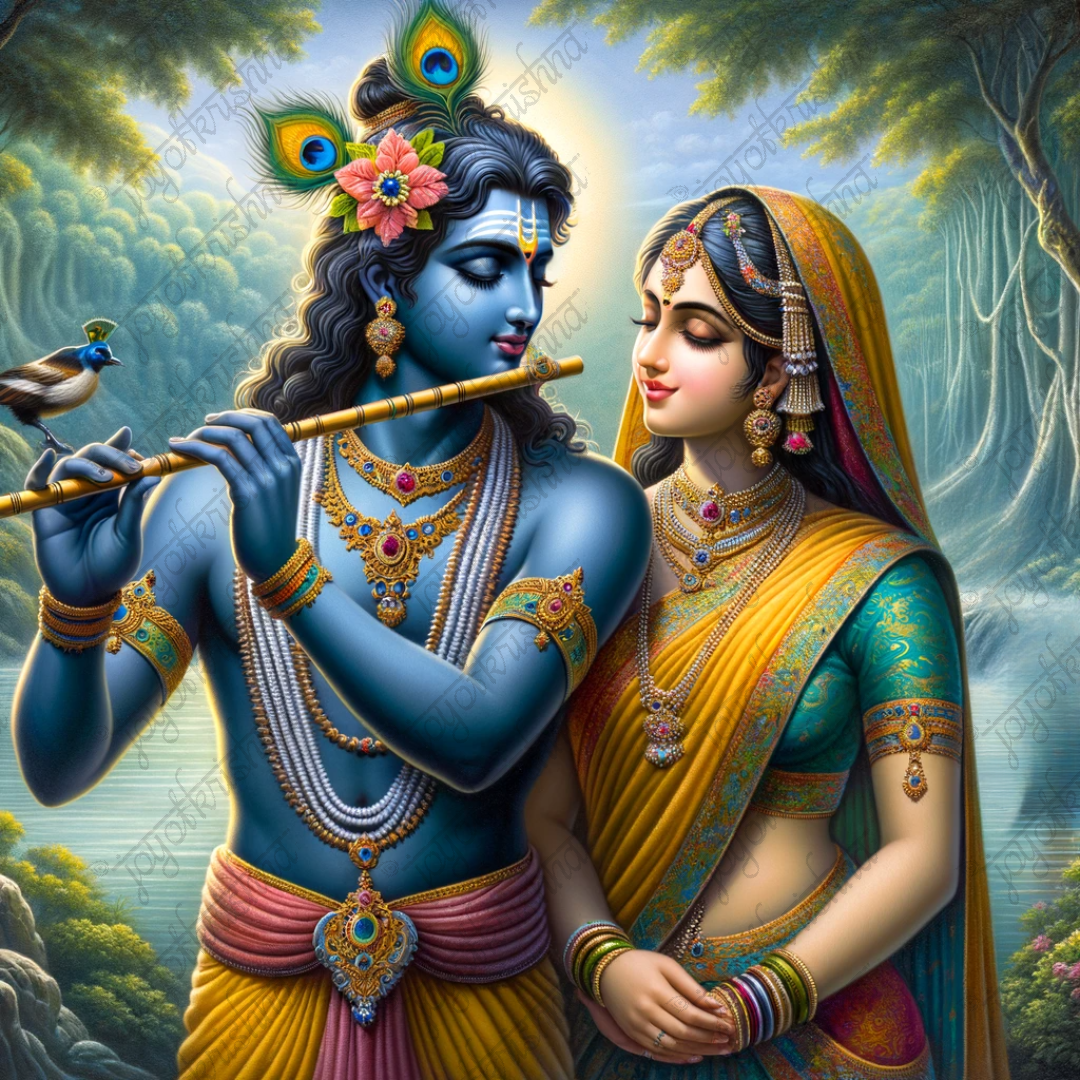
In the realm of Hindu mythology, one figure stands tall as an embodiment of divine love, wisdom, and spiritual guidance – Lord Krishna. Born in the city of Mathura, Krishna’s arrival on this earth was nothing short of a miracle. His uncle, King Kamsa, had been terrorizing the people of Mathura, and a prophecy had foretold that the eighth child of Devaki and Vasudeva would be the one to bring an end to his reign of terror. Fearing his downfall, Kamsa imprisoned Devaki and Vasudeva, killing each of their children as they were born. However, when Krishna was born, Vasudeva managed to escape from the prison and handed over the newborn to Nanda and Yashoda, a couple who lived in the nearby village of Gokul. This marked the beginning of Krishna’s extraordinary journey, as he grew up in the midst of cowherds and shepherds, spreading joy and love wherever he went.
As a child, Krishna’s mischievous antics and pranks often left the villagers bewildered, yet enchanted by his charm. He would steal butter from the houses, only to be caught and scolded by the women, who couldn’t help but be won over by his disarming smile. These early years in Gokul were instrumental in shaping Krishna’s connection with nature and the simple, rustic way of life. He spent his days playing with the cowherd boys, exploring the forests, and learning the value of hard work and humility. The stories of Krishna’s childhood have captivated the hearts of devotees for centuries, offering a glimpse into the life of a god who was, above all, human in his emotions and experiences.
However, Krishna’s divine mission was not limited to his idyllic life in Gokul. As he grew older, he began to confront the harsh realities of the world, including the cruelty of his uncle, King Kamsa. Krishna’s ultimate destiny was to kill Kamsa and free the people of Mathura from his tyranny. This he did, but not before displaying his remarkable prowess as a warrior and a strategist. The famous duel between Krishna and Kamsa is a testament to the former’s bravery and skill, as he single-handedly brought down the powerful king and his accomplices.
Krishna’s role in the epic battle of the Mahabharata is another defining aspect of his legend. As the divine charioteer of Prince Arjuna, Krishna offered counsel and guidance, helping the Pandavas to emerge victorious against their cousins, the Kauravas. The Bhagavad Gita, which is a dialogue between Krishna and Arjuna, is a profound exploration of the nature of reality, duty, and the path to spiritual enlightenment. In it, Krishna reveals the secrets of the universe, explaining the concepts of karma, dharma, and the interconnectedness of all living beings.
Throughout his life, Krishna remained a steadfast friend and companion to those who sought his help. His unwavering commitment to justice, compassion, and wisdom inspired countless individuals, from the humblest of villagers to the mighty warriors of the Mahabharata. As a god, Krishna’s divinity was not about wielding power or seeking worship; it was about embodying the highest ideals of humanity and showing us the way to live a life of purpose, love, and self-realization. Even today, the name of Krishna evokes a deep sense of reverence and affection, reminding us of the transformative power of love and the enduring presence of the divine in our lives.